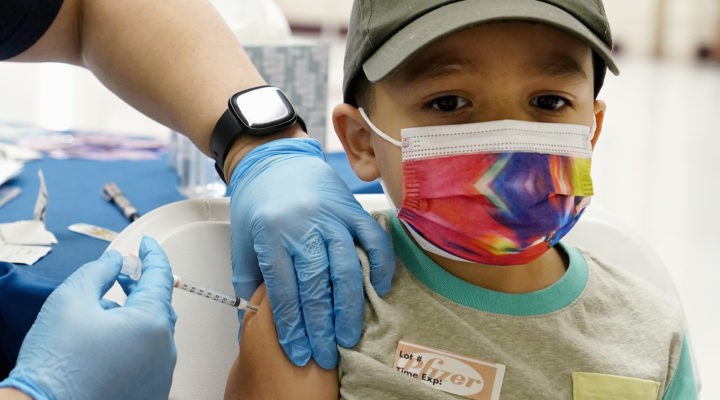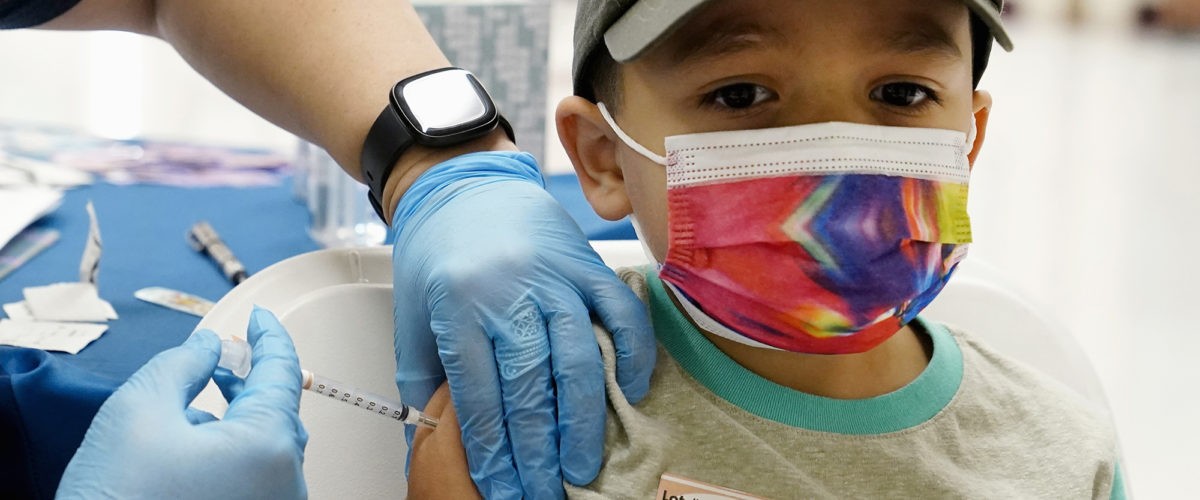The following Q-and-A with three health care professionals who have experience with pediatrics and parenting was created by Heather Mustain, associate pastor at Wilshire Baptist Church in Dallas. Heather is the parent of two young children, and her husband, Chad, is a hospital chaplain who works daily with COVID patients. Their oldest child was to be vaccinated Nov. 7; their youngest child is not yet eligible. The three health care professional interviewed all are active members at Wilshire.
Being parents to a child who is now eligible for the COVID-19 vaccine, Chad and I have had multiple conversations over the last year about what we would do when this moment arrived.
Chad, without hesitation, always has felt confident about vaccinating our 6-year-old daughter. I, on the other hand, needed a few questions answered before I could experience the same level of confidence. As parents, we have been tasked to make all kinds of decisions this year — decisions that have felt, to me at least, weighty and sometimes impossible.

Heather Mustain
So I asked three physicians, besides my own pediatrician, to weigh in on some of my own questions. Below you’ll find answers to my questions from three career-long practicing physicians: Cayce Brumley, a pulmonologist at Baylor Scott and White Health who has seen the devastating effects of COVID-19 and is a parent to three young children; Rhonda Walton, a pediatrician and grandparent; and Bill Jernberg, a retired emergency room physician, grandparent and adviser to Wilshire’s COVID-19 Advisory Task Force.
Is there really enough data and research to truly know that this vaccine is safe for my child? It feels rushed. How has this been developed and tested?
Cayce Brumley: Speed does not mean rushed. It means leveraging a whole lot of people, money and decades of previous work to get us a vaccine in nine months.
Rhonda Walton: Most people have heard of mRNA vaccines only recently, but mRNA technology used in the development of the COVID-19 vaccine has been studied for decades. When the pandemic began, it seemed that children were much less likely to catch COVID-19 than adults and less likely to become severely ill if they were infected. As the Delta variant has become prominent, we’ve seen significantly more severe pediatric infections, hospitalizations and deaths.
COVID-19 was one of the top 10 causes of death in children 5 to 11 years of age this past year. Healthy children can become extremely ill. Even children who have very mild COVID-19 symptoms with their initial infection can go on to have long-haul COVID-19 (chronic fatigue, cough, pain, fever, brain-fog, headache) or Multi-System Inflammatory Syndrome (a severe life-threatening illness with high prolonged fever and inflammation involving multiple organs).
“The risk of the disease is still far greater than any risk of the vaccine.”
As of mid-October 2021, more than 5,000 children have been diagnosed with MIS-C after a COVID-19 infection. There are rare, potentially devastating consequences of COVID-19 infection for children, and the vaccine is a safe, effective way to protect them from those outcomes. The risk of the disease is still far greater than any risk of the vaccine.
If my child already has contracted COVID-19, is it still recommended to get the vaccine?
Bill Jernberg: Yes. It is recommended for children to get the vaccine even after having had COVID. Researchers state that the immune response is enhanced for further safety.
Cayce Brumley: Children should get the vaccine regardless of previously recovering from COVID-19. An estimated 38% of children aged 5 to 11 years have detectable antibodies from natural infection. This is higher than estimates among adults, but natural immunity on a population level is insufficient in protecting kids.
“Children should get the vaccine regardless of previously recovering from COVID-19.”
Will the vaccine affect my child’s fertility? Will it alter their DNA?
Rhonda Walton: This vaccine works the same way other routine vaccines work by teaching the body’s individual immune system to recognize a specific virus and make antibodies to fight it, so that when your child is exposed, he or she may not get sick at all or will have much milder symptoms if infected.
The mRNA vaccines do not contain any live or dead parts of the virus, so it is impossible to catch or spread COVID from the vaccine. The mRNA carries instructions that immune cells use to create antibodies against the COVID-19 virus. The mRNA never enters the nucleus of cells or interacts with cellular DNA. Once the immune cells learn how to recognize COVID from the mRNA, the mRNA is broken down and quickly removed from the body, so it has no effect on growth, development or fertility.
“The mRNA never enters the nucleus of cells or interacts with cellular DNA.”
What side effects should I expect if I choose to vaccinate my child?
Rhonda Walton: Minor, short-term side effects that you might expect your child to have after the vaccine (especially the second dose) include fever, muscle or joint pain, headache or vomiting. These typically resolve in a day or so and occur less often in young children than in teenagers. Very rarely, myocarditis has occurred after the vaccine, but it has resolved on its own. Myocarditis is more common with MIS-C associated with the disease.
Do you have plans on vaccinating your child? Or encouraging your grandchildren to be vaccinated?
Cayce Brumley: Yes, my 10-year-old daughter got vaccinated Saturday, Nov. 6, which was the earliest I could get her an appointment, and my 4-year-old will receive it on her fifth birthday in December. My 1-year-old is not eligible, but will get it as soon as the vaccine is approved by the FDA and evaluated by the CDC once data is released for his age group.
Rhonda Walton: As a grandmother, I will want my grandkids to get the COVID vaccine just as soon as it is available for them. As an “older” pediatrician, I’ve seen how vaccines (or their avoidance) can impact children’s lives in profound ways. Vaccines allow us to prevent avoidable suffering, and now we can finally do that with COVID-19. This is an amazing blessing.
Bill Jernberg: My grandsons are already scheduled for their vaccinations.
Related articles:
A pediatrician’s advice to parents worried about the COVID vaccine and their children
6 things you should know about the COVID vaccine | Opinion by Christy Edwards and Jen Dilts
Francis Collins: ‘Give God the glory’ for vaccines ‘but roll up your sleeve’


